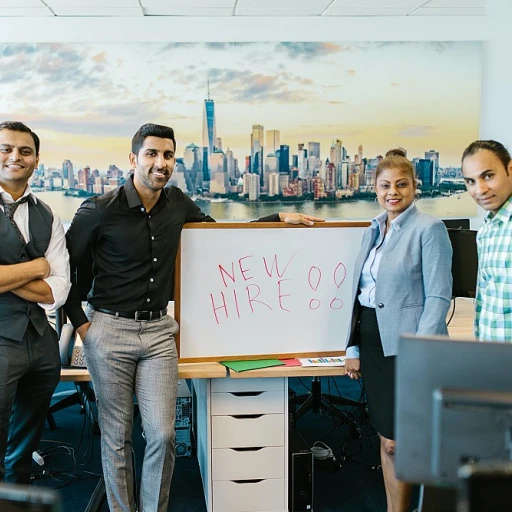
Understanding Think Tank Initiatives
Deconstructing Think Tank Mechanisms
Think tanks are influential entities in the realm of policy development and leadership. These organizations, often structured as independent groups, play a pivotal role in shaping public policy and fostering professional development. Originating typically from university settings or established as independent research institutes, think tanks engage in extensive studies and analysis of economic and social issues.
They function by producing research work that delves into policy issues and makes recommendations that could influence policy making at various levels, from local to international perspectives. The goal is to stimulate a policy forum where open society and civil society can work together towards problem-solving and innovation in specific areas.
In the United States and the European Union, think tanks are instrumental in policy engagement and policy influence processes. By tackling economic social concerns and tapping into global networks, they leverage social media and traditional research dissemination channels to reach stakeholders.
Despite their widespread presence, the operational dynamics of think tanks differ widely across various regions. Yet, the constant attribute is their role as actors in long term policy development, where they serve as catalysts for change and innovation in public policy frameworks.
The Role of Think Tanks in Continuous Learning
The Interplay Between Think Tanks and Continuous Learning
The symbiotic relationship between think tanks and continuous learning is pivotal in shaping both policy development and professional growth. Think tanks act as a bridge, bringing together an array of experts and stakeholders in a collaborative effort to tackle pressing social and economic issues. This, in turn, fosters an environment ripe for continuous learning, benefiting individuals and society as a whole. Think tanks provide platforms for intellectual exchange and knowledge dissemination in specific areas, such as public policy and economic social development. By organizing forums, workshops, and policy discussions, they offer opportunities for policy engagement and development of leadership skills. This becomes an arena where both seasoned professionals and fresh thinkers can engage in discussions that lead to meaningful initiatives. Moreover, think tanks often collaborate with universities, civil society, and international organizations, contributing to an enriched learning environment. This collaborative effort plays a crucial role in policy-making processes and policy influence on a global scale. Groups involved in these initiatives often rely on cutting-edge research and evidence-based policy proposals, which help fuel long-term impacts in public policy. Another aspect where think tanks and continuous learning intersect is through the use of digital platforms and social media. By disseminating critical information and engaging with diverse audiences, think tanks can further their reach and impact, enabling a wider array of individuals to benefit from their analyses and insights. In the domain of continuous learning, think tanks have carved out an essential role in not just policy forums or policy-making, but also in the ongoing development of professional skills and knowledge. As these institutes adapt to shifting global dynamics, their contributions to public discussions and policy issues remain invaluable, proving that their role will continue to be significant in the advancement of society and the workforce.Challenges in Implementing Think Tank Initiatives
Overcoming Obstacles and Realizing the Potential
Implementing think tank initiatives in continuous learning comes with its share of challenges that can impede their effectiveness. Despite their potential to foster professional development and policy making, these initiatives can sometimes encounter hurdles. One such challenge is the complexity of policy issues in specific areas. With the rapidly changing landscape of public policy, think tanks often find it challenging to keep up with the global dynamics at play, especially when addressing economic and social concerns. Navigating these issues demands a deep understanding of both local contexts and international developments, which can be time-consuming and resource-intensive. Moreover, the collaboration among diverse interest groups is another line of difficulty. Bringing together policy engagement, university scholars, and civil society actors necessitates effective leadership and consensus building, where aligning on a common vision can prove to be complex. Nevertheless, these groups are essential stakeholders in the policy forum, capable of creating meaningful change if their collaborative efforts are successful. The influence of special interest groups can also pose a challenge. Many think tank initiatives work towards maintaining an open society, free from the biases, which special interest groups might push. Balancing between long-term strategy and immediate social media narratives is vital to avoid falling into traps that might lead to policy forum derailment. Funding, both from public and private sources, is crucial for these initiatives. However, securing financial support for deep research and policy development can be a roadblock, especially as the competition for funds intensifies. Lastly, the need for policy influence without heavy governmental or corporate interference is a fine line to tread. Many think tanks, especially within the united states, the European Union, and around the world, strive to maintain their independence while exerting influence in policy making. Despite these hurdles, the presence of robust leadership, clear objectives, and constructive international collaboration among diverse groups provides a pathway to surmount these challenges. Stakeholders engaged in a tank initiative must be committed to building synergies, respecting the economic social landscape, and acknowledging the invaluable role of public policy experts and their insights. With these concerted efforts, think tank initiatives can indeed become a significant force in continuous learning. For further understanding of the intricate dynamics, explore how productive techniques for continuous learners can be leveraged to navigate these challenges effectively.Case Studies: Successful Think Tank Initiatives
Successful Think Tank Initiatives: Real-World Examples
Exploring successful think tank initiatives provides valuable insights into how these groups can effectively contribute to continuous learning and policy development. These examples highlight the diverse approaches and impacts that think tanks have had across various sectors and regions.
Innovative Policy Development in the European Union
In the European Union, think tanks have played a crucial role in shaping public policy and fostering economic and social development. By engaging in policy forums and collaborating with civil society, these initiatives have influenced policy making in specific areas such as environmental sustainability and digital transformation. Their work often involves extensive policy engagement and collaboration with both governmental and non-governmental organizations.
Leadership in Global Economic and Social Issues
Internationally, think tanks have been instrumental in addressing global economic and social challenges. For instance, initiatives focusing on economic social policies have provided platforms for policy influence and leadership development. These programs often involve partnerships with universities and international institutes, enabling a broad exchange of ideas and expertise.
Public Policy and Professional Development in the United States
In the United States, think tanks have been pivotal in shaping public policy and fostering professional development. By conducting comprehensive studies and engaging with special interest groups, these initiatives have successfully addressed policy issues ranging from healthcare reform to education policy. Their work often extends to social media platforms, enhancing public awareness and engagement.
Long-Term Impact and Open Society Initiatives
Some think tanks have focused on long-term initiatives aimed at promoting open society values. These programs often involve collaboration with international partners and focus on areas such as human rights and democratic governance. By fostering policy forums and engaging with diverse stakeholders, these initiatives have made significant contributions to policy development and social progress.
Strategies for Effective Think Tank Initiatives
Best Practices for Initiating Effective Think Tanks
For an initiative to thrive in continuous learning environments, think tanks must employ strategic approaches. A robust professional development program is foundational to equipping members with necessary leadership skills. Ensuring that individuals contribute effectively to the initiative involves integrating both academic and practical training. Collaboration with universities and global institutes can augment this learning process.
Ensuring Policy Engagement and Influence
Think tanks, expected to influence public policy, need to engage intentionally with policymakers, civil society, and special interest groups. Participating in a policy forum where open discussions on public policy issues take place can enhance visibility and impact. This approach is especially significant in regions such as the United States and the European Union, where policy influence is paramount for tangible social change.
Leveraging Social Media for Broader Reach
Utilizing social media platforms can expand the reach and impact of think tanks engaging in economic social programs. Regularly sharing insights, policy studies, and initiatives through social channels promotes transparency and facilitates public interaction. Thus, think tanks can enhance their presence, allowing for a more inclusive public discourse.
Prioritizing Long-Term Goals
A successful think tank initiative commits to long-term objectives rather than focusing on immediate gains. Sustainable development and economic growth rely on long-term policy strategies and informed decision-making. By aligning their ambitions with global socioeconomic goals, think tanks can maintain relevance and exert considerable influence in specific areas.
Future Trends in Think Tank Initiatives and Continuous Learning
Emerging Trends in Think Tank Initiatives
As we look to the future, think tank initiatives are poised to evolve in response to global challenges and technological advancements. The integration of digital tools and platforms is reshaping how think tanks operate, enabling them to reach wider audiences and engage more effectively with stakeholders. Social media, for instance, is becoming an essential tool for policy engagement and public discourse, allowing think tanks to influence policy issues and connect with civil society in real-time.
Global Collaboration and Policy Influence
International collaboration is another trend gaining momentum. Think tanks are increasingly forming cross-border partnerships to tackle global issues such as climate change, economic development, and social justice. These collaborations enhance the capacity for policy influence, as diverse perspectives and expertise are pooled together to address complex challenges. The European Union, for example, has seen a rise in think tank networks that focus on specific areas of policy making, fostering a more integrated approach to policy development.
Focus on Professional Development and Leadership
There is also a growing emphasis on professional development within think tank initiatives. Programs aimed at nurturing leadership skills and policy expertise are becoming more prevalent, ensuring that think tanks remain at the forefront of policy innovation. Universities and institutes are playing a crucial role in this regard, offering specialized training and studies that equip individuals with the skills needed to navigate the complexities of public policy and economic social issues.
Adapting to Economic and Social Changes
Think tanks must also adapt to the shifting economic and social landscape. The rise of special interest groups and the open society movement are influencing how think tanks prioritize their work. By aligning their initiatives with the needs and interests of diverse communities, think tanks can remain relevant and impactful in a rapidly changing world.
Long-Term Vision and Sustainability
Finally, sustainability is becoming a key consideration for think tank initiatives. As they strive to make a lasting impact, think tanks are adopting long-term strategies that ensure their work remains viable and effective. This involves not only securing funding but also fostering a culture of innovation and adaptability within their organizations.













